[Chameleon Software, ZX Spectrum]
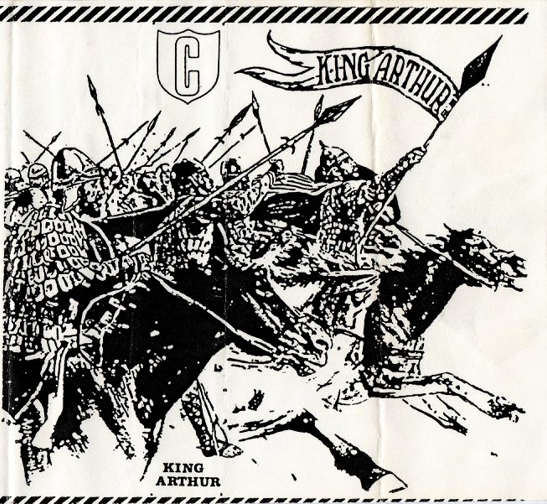
– Merlin, why are we doing this again? I thought I had already united England!
– I am sorry Arthur, but we need to start all over again!
– Oh no! Will I have to listen to your creepy sex talk a second time, Merlin?
– No, because this time it will be all about marches, battles and cassette swapping. Oh, dear, so much cassette swapping.
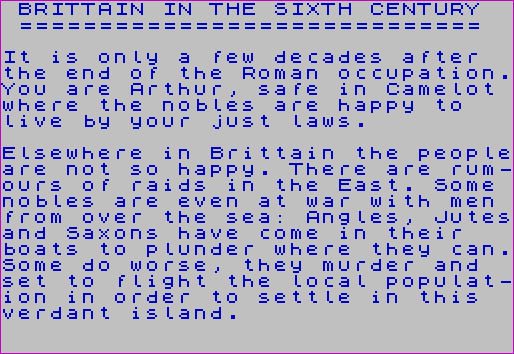
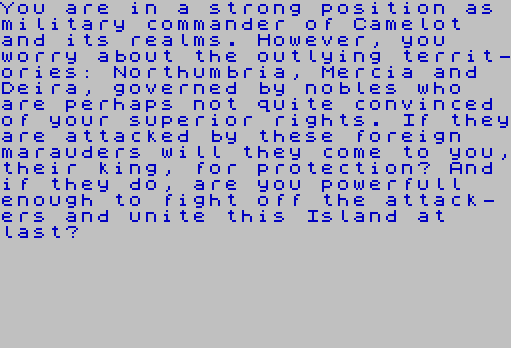
We have already seen the two typical variations around the King Arthur theme: the historical one in Richard Bodley-Scott’s King Arthur, and the Romance one in Chris Crawford’s Excalibur. Chameleon’s King Arthur belongs to the first category: Geoff Goulding, who founded Chameleon, described it as “an adventure in 18 parts, dealing with the life of Arthur in 6th century Britain“, “factually as authentic as possible”. So, without further ado, let’s start with the first part.
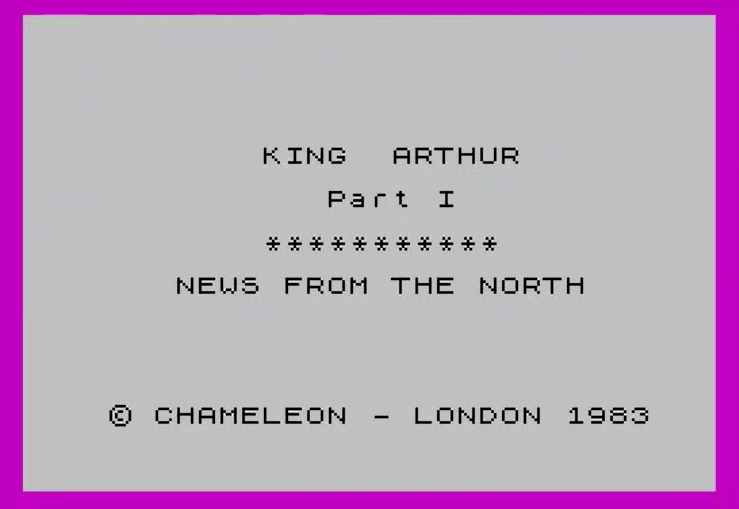
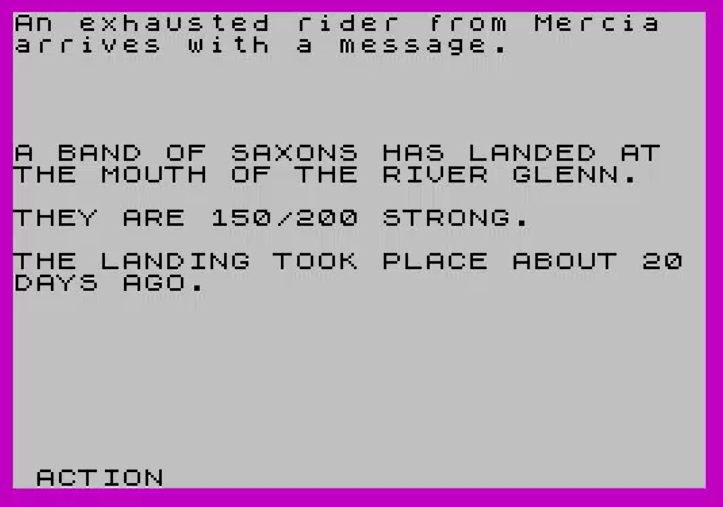
– Any other notes, Merlin? Do they require our help?
– They don’t say anything about that.
– And isn’t Mercia an Anglo-Saxon Kingdom and as such one of our sworn enemies? Why are they sending us messages in the first place?
– Don’t pay attention to this kind of irrelevant detail, Arthur. Focus on the big picture: Saxon raiders.
The game opens with the screens above, with 6 available commands:
- See the resources,
- Call up [all] the reserves, which also displays the resources.

3. Call part of the reserves, which is useless as there is no way to call troops from the reserve later in the game,
4. Prepare for travel, which means allocating all the horses, men and equipment between “leave” and “away”. The game lets you take riders without horses or archers without bows if you are so inclined.
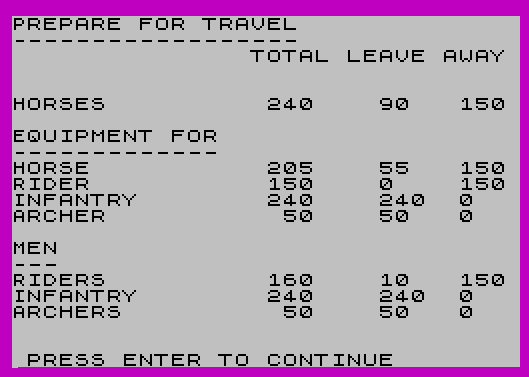
5. Check how many days have passed since the landing. It starts at 20, so now we are at 32.
6. Leave the camp.
What you need to do is call all your reserve (just press #2), prepare your army (#4) and leave (#6) – all other options are useless. It looks like moving fast is important, so I prepare an all-cavalry force and leave Camelot, triggering a staple of the King Arthur experience: the cassette swaps and save record management.
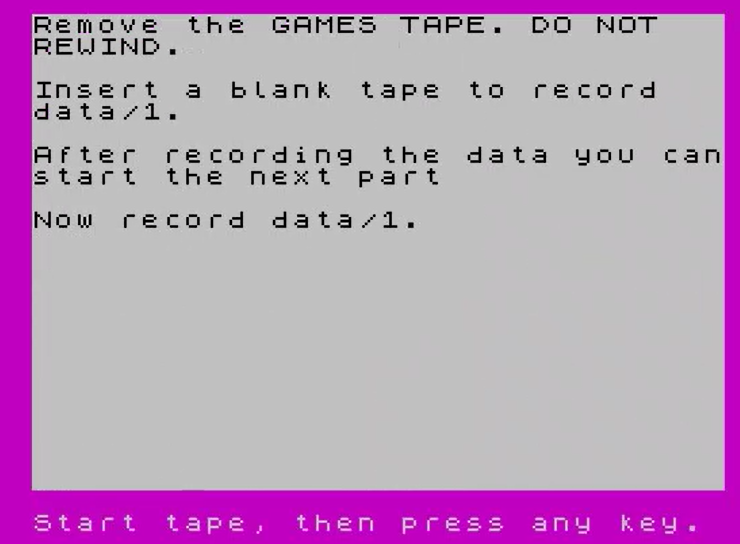
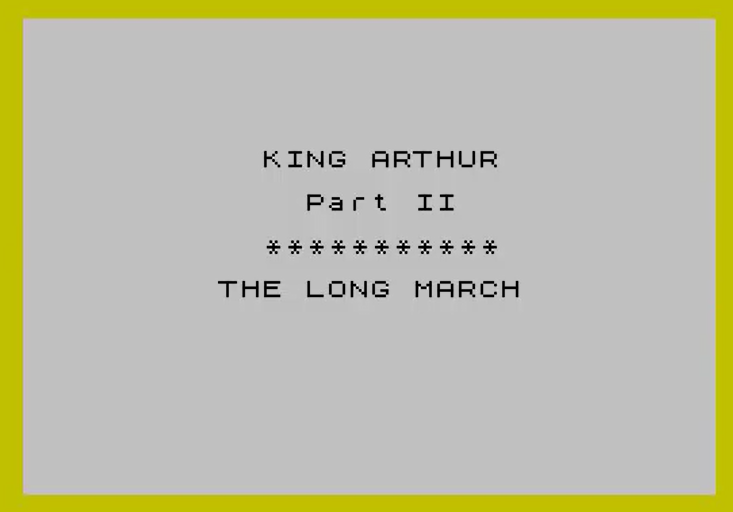
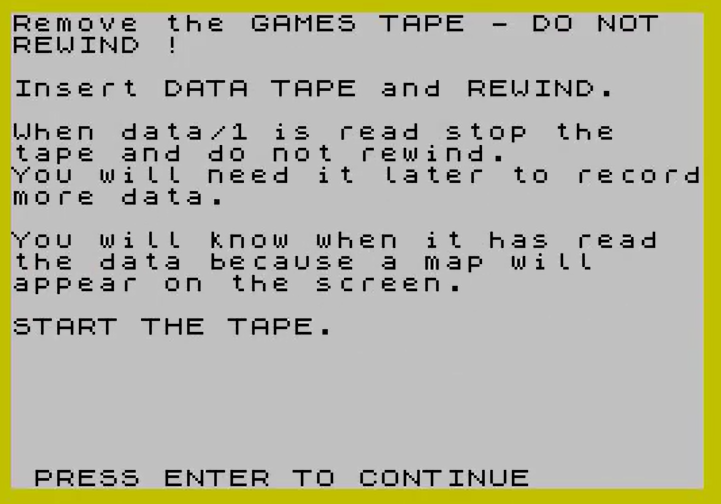
I hope you like swapping cassettes and keeping track of your data, because this is only the beginning.
After selecting the force that will escort Arthur and no fewer than 3 cassette swaps in a row, the second part of the game opens on a map.

Do you see that black pixel on the bottom left of the map? That’s my group. I must reach the red square of four pixels near the sea, with each input moving me by one pixel. As a reminder, the ZX Spectrum is 256×192 pixels, so as the crow flies that’s more than 300 taps. And no, holding the key pressed won’t work.
Of course, Arthur’s cavalry does not fly like the crow, and the purple, blue and green pixels stop me, so I have to pass between two purple mountains, then ford North of the lake, then South to avoid the green swamp, then North again.
When I finally arrive, I am informed that my army has been battered in the march and lost 30% of its men. Alas, the manual warns:

Game over then. I start again, trying to cross through the Northern ford, but that’s even worse. One test later, I find the “correct” route: cross the 2 pixels-wide gap between the start of the river in the South, then the 3 pixels-wide opening between the other river and the sea. With this route, I only lose 20% of my force.
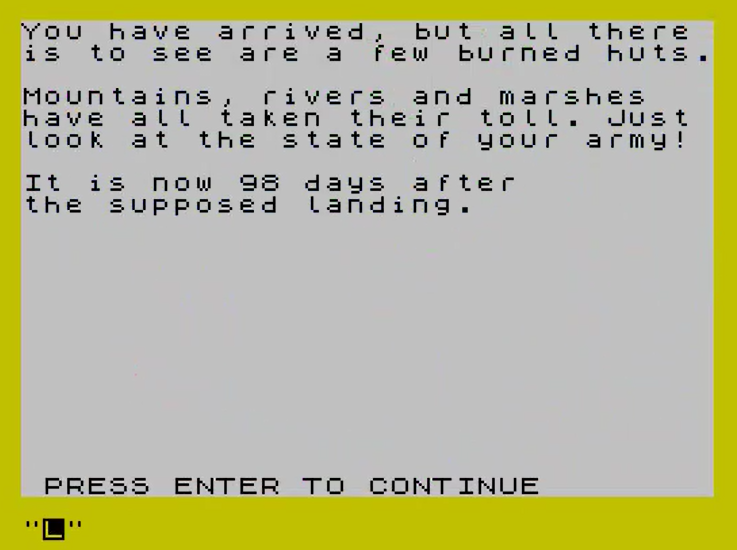
What am I going to do with this army? Well, first we interrupt this program for a bit of cassette swapping:
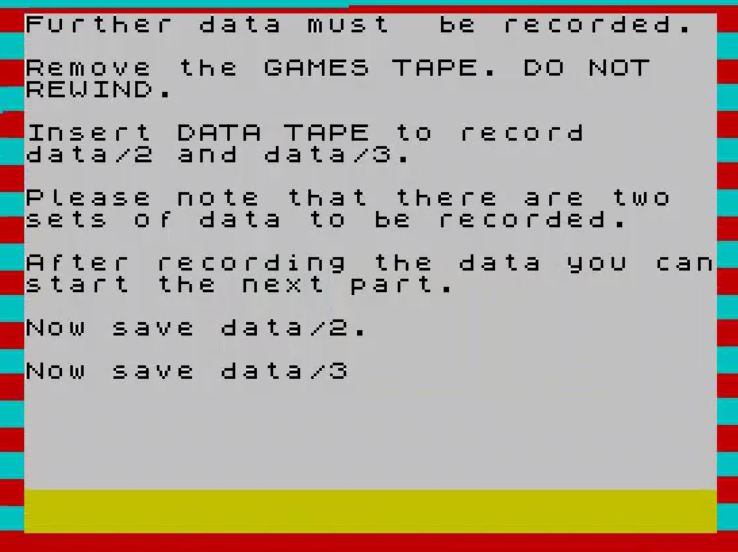
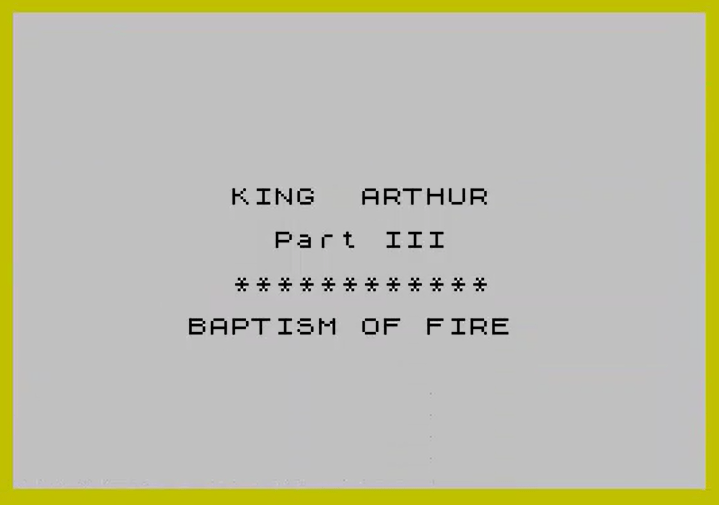
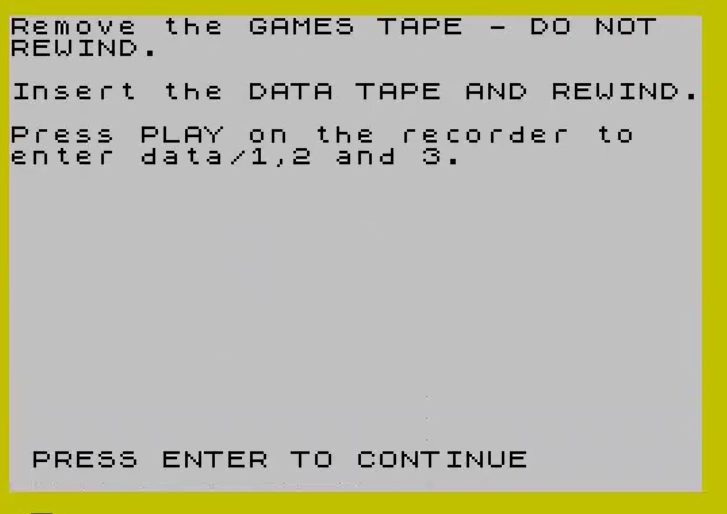
Immediately after doing my 6th cassette swap, I am welcomed by this screen:
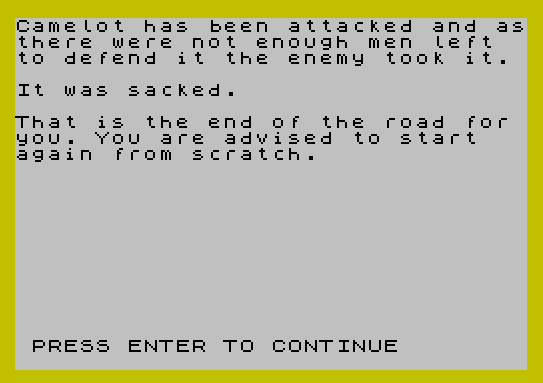
Back to swap 1.
I launch the game for the third time, change my army composition somewhat, go through the 300+ movements and the 6 cassette swaps again and now I have the opposite problem:
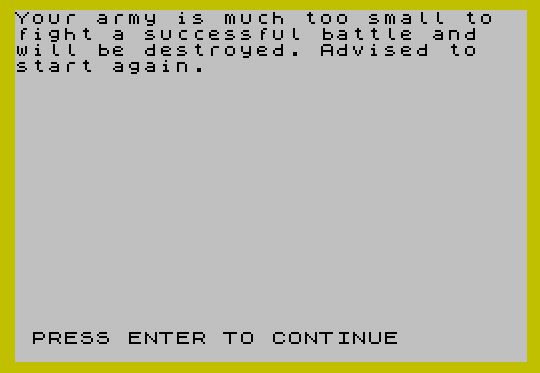
Clearly, what the game wants from me is that, through trial-and-error I find the exact combination of 8 SKUs (men, equipment and horses) that allows me to both defend Camelot and win the battle. I try a little more to get into the designer’s head, to no avail, and then decide to approach the game differently. ChatGPT o1-preview has just been released, and supposedly it is good at reading code. It’s a good test: I feed it the code of the game and it tells me what I need to leave in Camelot:

This works, and after the usual cassette swaps I can proceed:
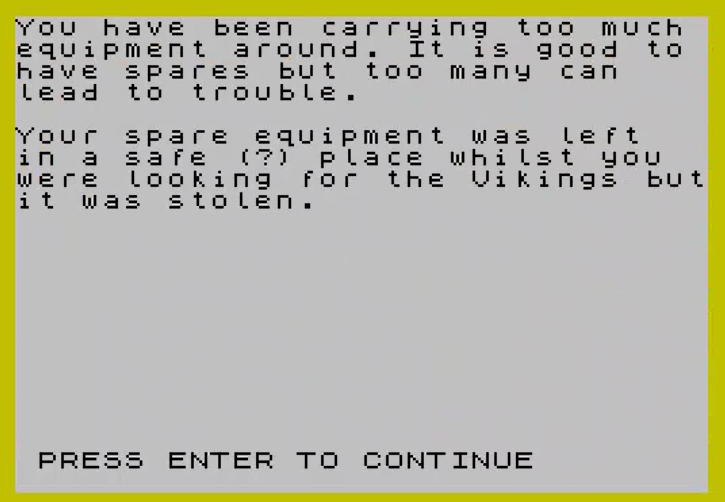
– They’re, errr, Saxons from the future, Arthur. Listen, I have no idea why we’re fighting Vikings.
Now the fun part: to “pass” Part III, you need to have excess equipment that will be hidden and stolen by the “Vikings” – there is no string in the code about having the right amount of equipment!
Anyway, we move to the 7th swap and the 4th data file:
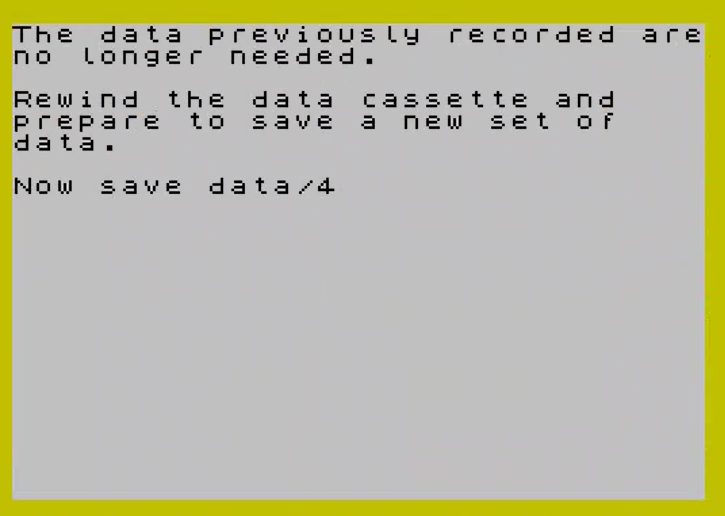
That’s the end of Part III, titled “Baptism of Fire”. The whole part is basically either a “fail” string or a “Viking stole your stuff” string without any sort of interaction, but because I needed the exact number of troops to pass I got stuck on it for hours.
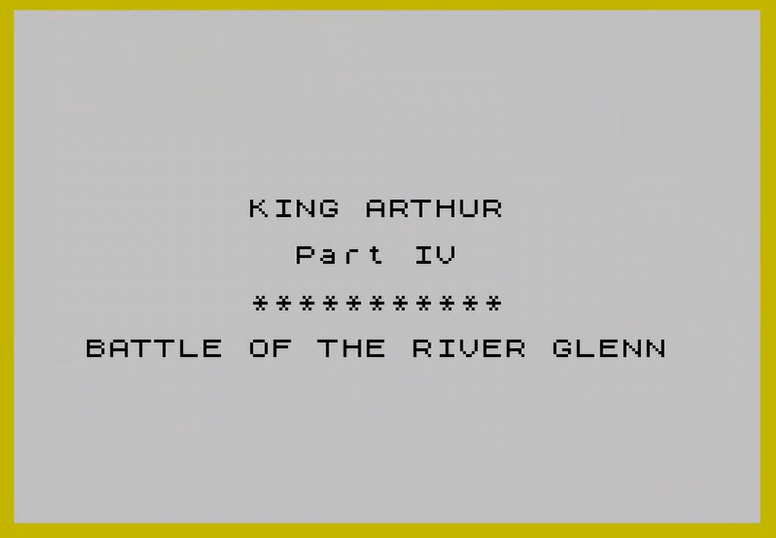
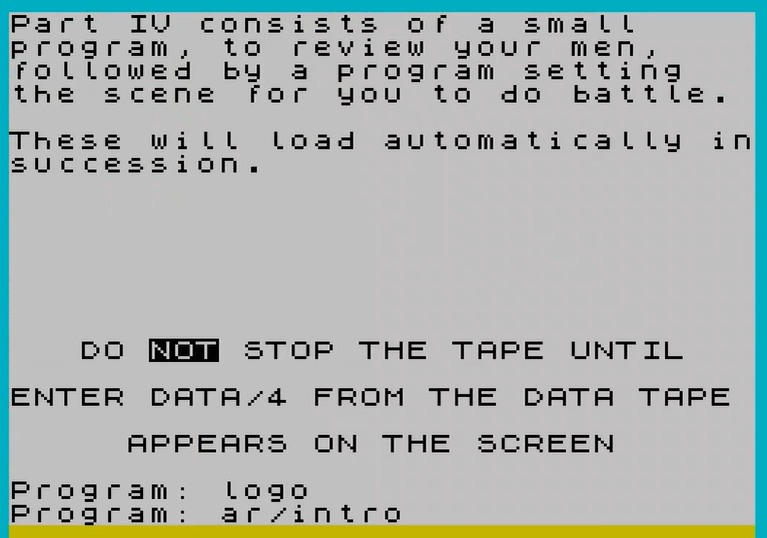
– We should prepare for battle, Arthur!
– Battle? But we only found a few burned huts, Merlin. That’s what the chronicler said in part II
– Maybe, but part III was called Baptism of Fire and we have not fought yet!
This is part IV, and we finally reach the first battle of the game:
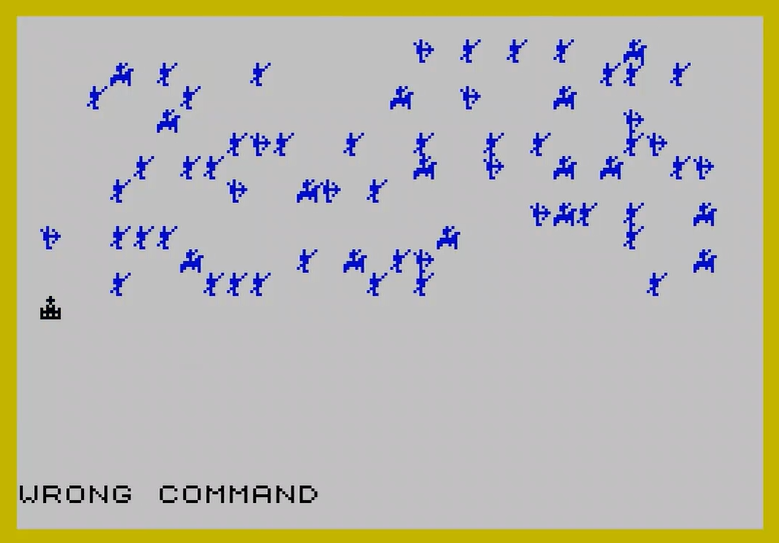
Problem: I can move the “crown” at the bottom left with the arrow keys, but I have no idea what I should do! The manual is of no use as it only describes the commands in Part I and warns you about not losing more than 20% of your force in Part II. As far as the manual is concerned, the game ended in part II.
I don’t even know if the guys in blue are my team or the opposite team, so once again I go check the code and find out that I can press A, R and I to deploy archers, riders and infantry.
In a nutshell, the “gameplay” of Part IV consists of deploying my troops next to the blue troops, taking into account that:
- Archers always kill infantry and riders,
- Riders always kill infantry,
- Infantry are worthless
- The results of combat between equivalent units (archers vs archers, riders vs riders) is 50/50.
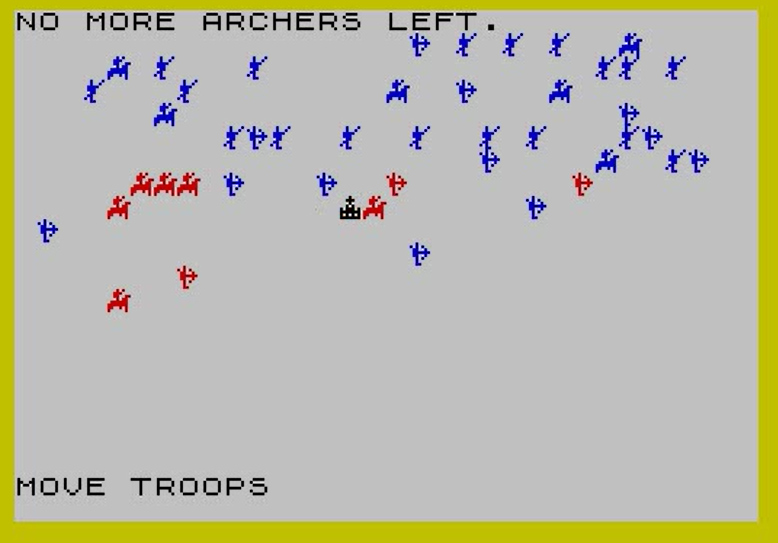
You may think that it is a sort of puzzle game where I must try to kill as many enemies as possible by deploying my soldiers in the middle of enemy groups, and that would be passable gameplay, but still you would be wrong. Your soldiers only kill one enemy unit at the same time… but you can just pick them up again and redeploy them somewhere else, as many times as you need!
The real challenge here is your movement: there is a bug where Arthur can “walk” on enemy soldiers and make them disappear, in which case they become (according to o1-preview) invincible, but still accounted for during battle resolution!
Checking the code also allowed me to see that on the other hand archers are not taken into account in the final “battle resolution”, so quickly enough the battlefield looks like this:
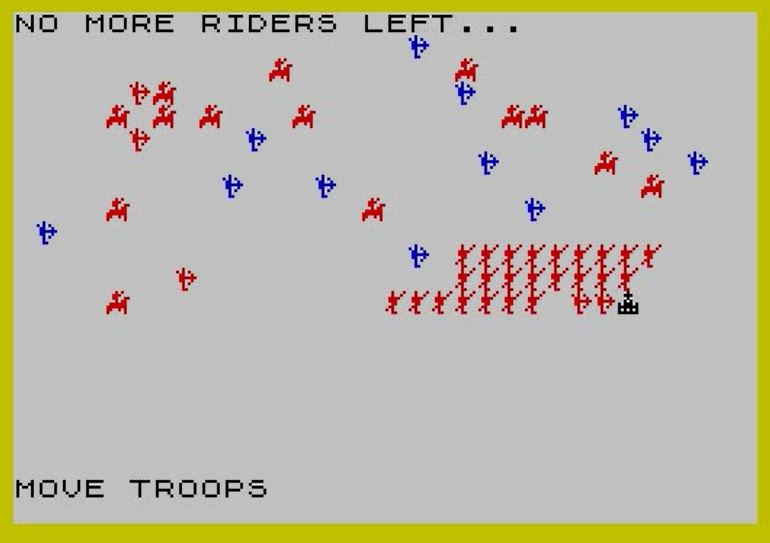
And then, I could press “F” to conclude the battle and move to battle resolution, a key that anyone trying to understand this section of the game would have pressed, triggering an unrecoverable loss and the pleasure of starting the game from Part I again.
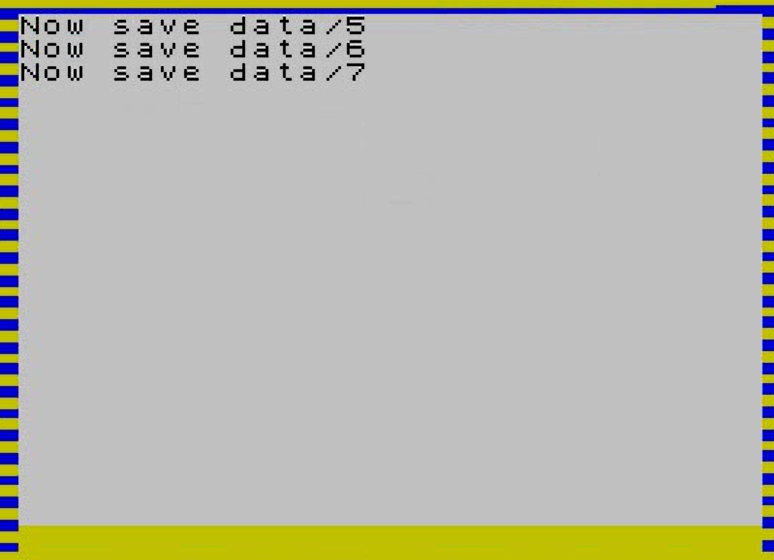
After another interruption where I must save the data, put the game disk, and then load the data immediately, I proceed to Part V!
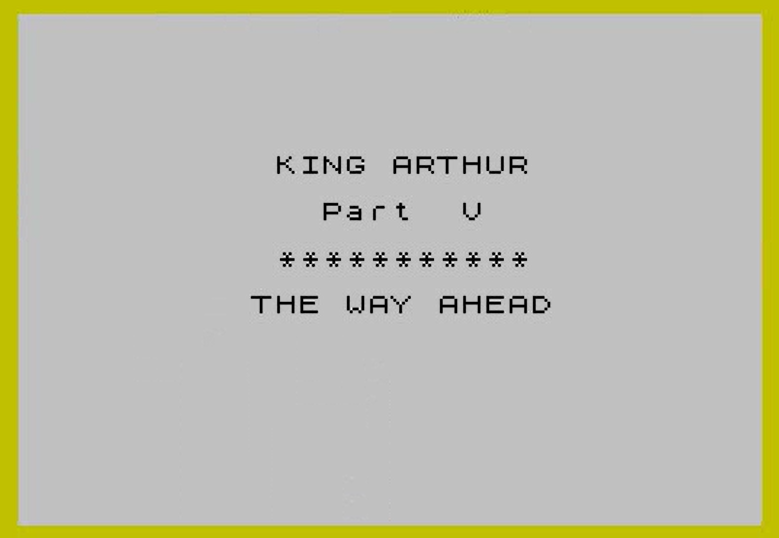
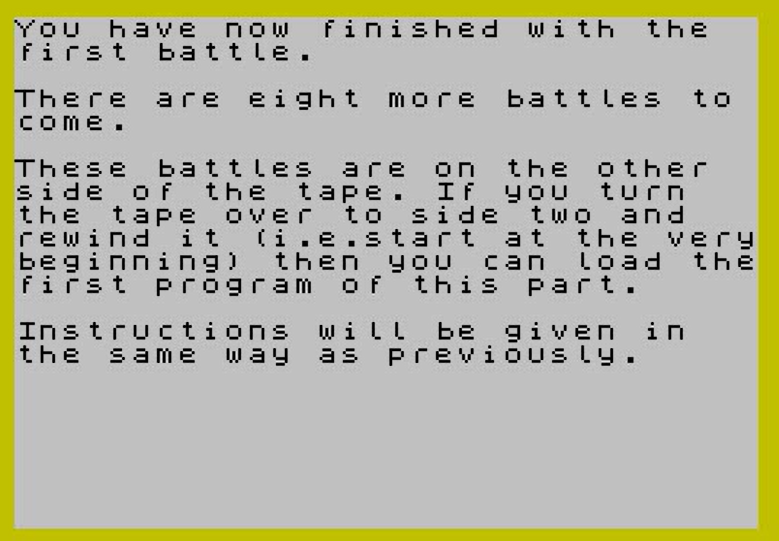
– Thanks for the infodump, but did we actually win the battle?
– We’ll know after one extra swap, Arthur!

With part V flashing by me, I have now reached the second tape of the game – my 11th swap. I have the privilege of playing on emulator, so all the swaps are virtual, but in all likelihood in real-life you would have slipped at least once and overwritten the game disk. It’s a miracle this game reached us.
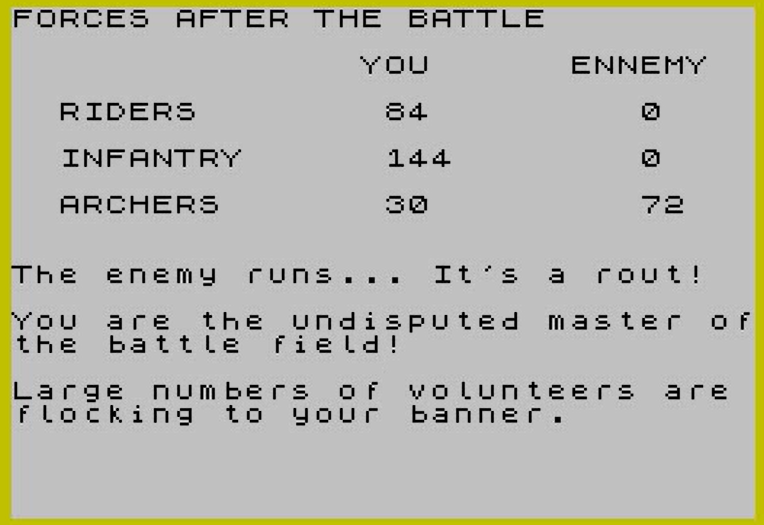
If you managed not to slip, the level of difficulty increases immediately after the battle report.
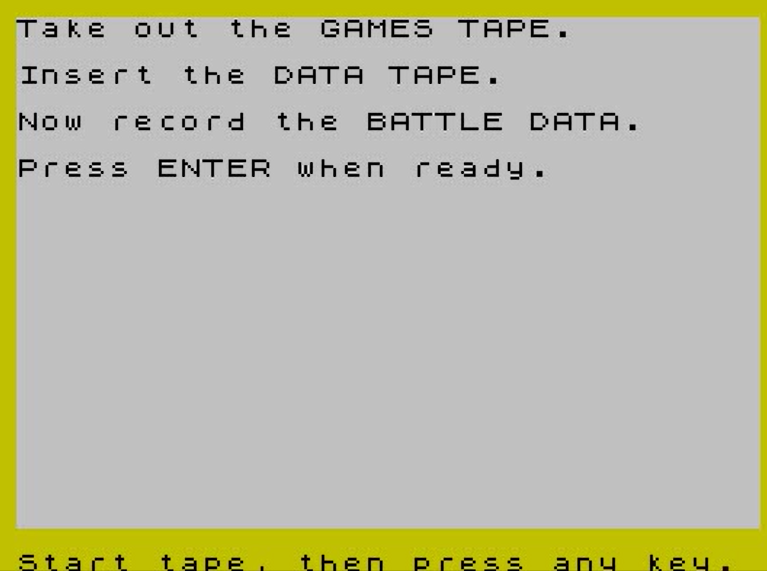
Remember when the game told you to save data/1, data/2 or data/3? It was easy mode! From this part onward, the game will stop respecting any naming consistency and you will have to guess which data you are supposed to load or overwrite.

After two more swaps, I reach another map, except this time I must travel from one corner to another, so the designer really leveraged the Spectrum’s 256×192 screen. At this point, the narration left the car and the game stopped trying to explain what you are doing and why.

I pass below the “MOVE” text and then head North to the target, so that’s 400 keystrokes this time, bringing me to…



Well, part VIII came and went in a few seconds, and in part IX we start our second battle. As expected, it is exactly the same as the previous battle, with more archers.
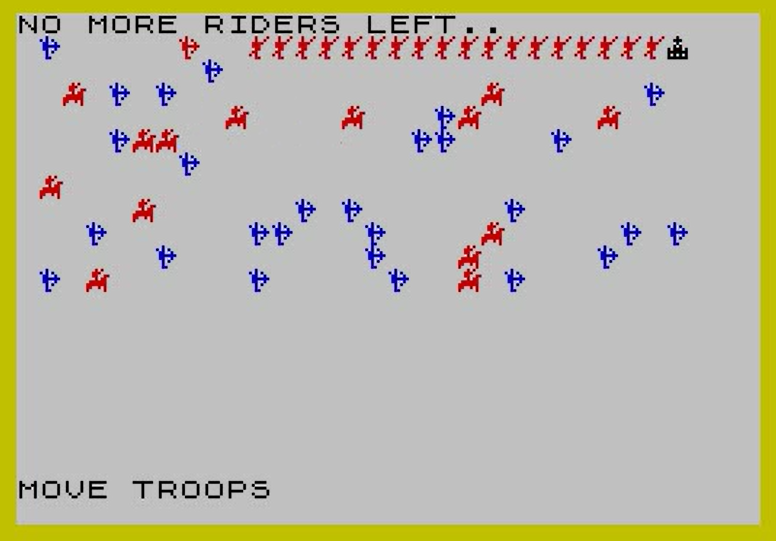
… but that’s also the end of this AAR. Either because of a bug or because I was finally defeated by the cassette swap craziness, I could not proceed further – the best I could do was restart from part VI. Checking the code, this might not be the bug, given that the short Part VIII seems to be used as a redirection toward the correct battle…
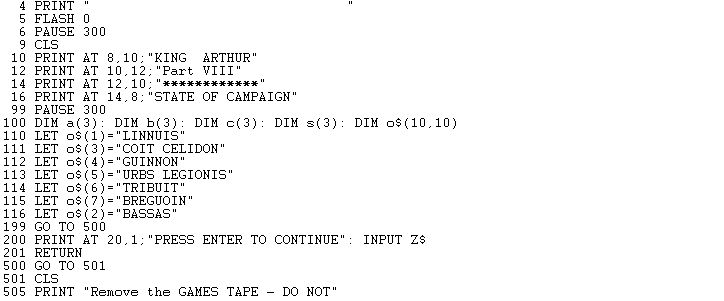
… but in my case, I only ever had the battle of Linnuis cycling, so I am not going to see Arthur’s ultimate victory. I am fine with that.
Rating & Review
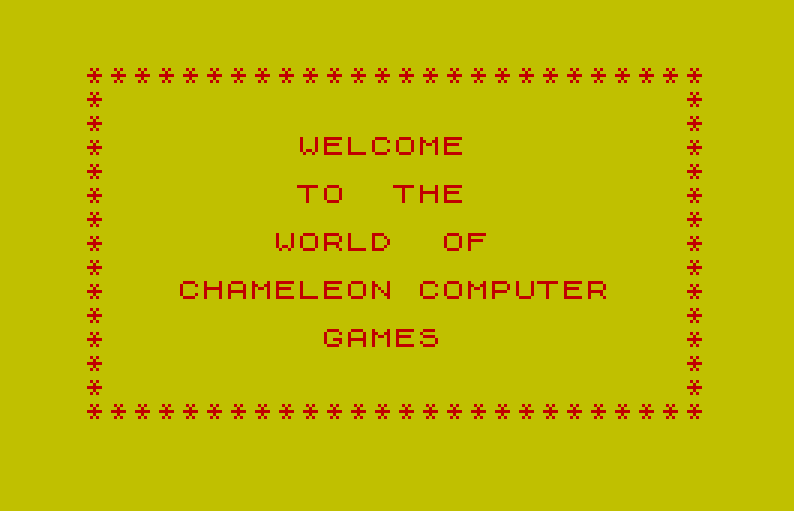
King Arthur by C.P.S. Games (or not) and published by Chameleon Computer Games, UK
First release: Officially October 1982, probably much later
Genre: Fraud
Average duration of a campaign : Possibly dozens of hours!
Total time played: I lost track
Complexity: Low (1/5) if you can read the code
Rating: Born obsolete
Ranking at the time of review: It would be 144/144 but it’s not fair for the other terrible games to be in competition against King Arthur.
Long considered lost media, King Arthur was recently (2022) found along with its diminutive instruction booklet, making it the first game initially published by a British company called C.P.S. Games to be documented.
We find some backstory in a Home Computing Weekly interview of Geoffrey Goulding of Chameleon Computer Games in May 1983 – I recommend you read it (page 42) to fully enjoy the rest of the article. In a nutshell: Chameleon Computer Games bought the rights to King Arthur and other games from C.P.S., “one of the casualties of the competitive software market – it opened and closed again in the space of about three weeks”. Goulding insists that while they agreed to take care of C.P.S.’s overdue order, they are different companies: “People assume that Chameleon used to be C.P.S. and has changed its name, which is a pity.” It is also a pity that Chameleon kept encountering issues with delivering those orders: C.P.S.’s records were all over the place, there were issues with the tape duplication, some cassettes ended up containing fairy tales rather than games and some masters were stolen! Delays, delays and more delays.
Well, I don’t like to throw accusations around, but Goulding’s story does not track. The smoking gun is that both companies shared the same address: C.P.S. Games first announced it would be moving to a new office in November 1982, and then starting mid-December their ads carried the new address Lynthonia House, 7/9 Praed Street, London. When Chameleon Computer Games started advertising in mid-January 1983, their address was… Lynthonia House, 7/9 Praed Street, London. Strange coincidence.
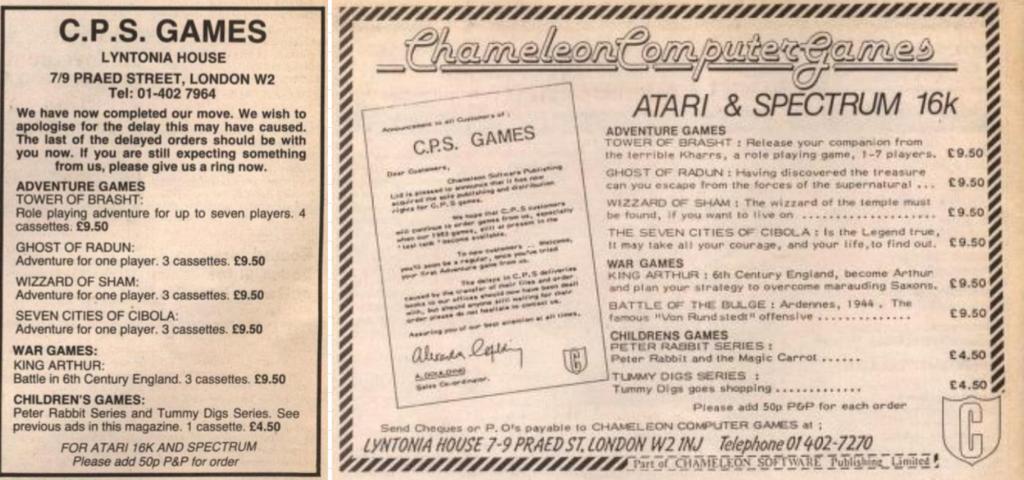
There are other fishy elements in Goulding’s narrative. Goulding describes C.P.S. as a company that only lived for 3 weeks, when C.P.S. had published ads under that name since July 1982. Goulding claims Chameleon started out with 12 programs written by three different programmers, but with one exception all the programs advertised by Chameleon were originally published by C.P.S.. In a similar instance of muddling the water, Goulding explains that Chameleon has been selling business software for the Apple for a year, but while I could not find any digital footprint of Chameleon doing this, this was the activity of C.P.S.’s (then called Holdco) starting back in 1981!
The first footprint of Holdco/C.P.S. was a one-off ad for an Apple software in the August 1981 issue of Personal Computer giving us a name: Anthony Scott. The second footprint is an Ad for The Sign of Hadrin, a computer-meets-real-world Apple game with a cash prize involved and, already, Arthuresque fantasy. The address and the two phone numbers mentioned in those ads will remain the same for Holdco/C.P.S. until the move to Lynthonia House.
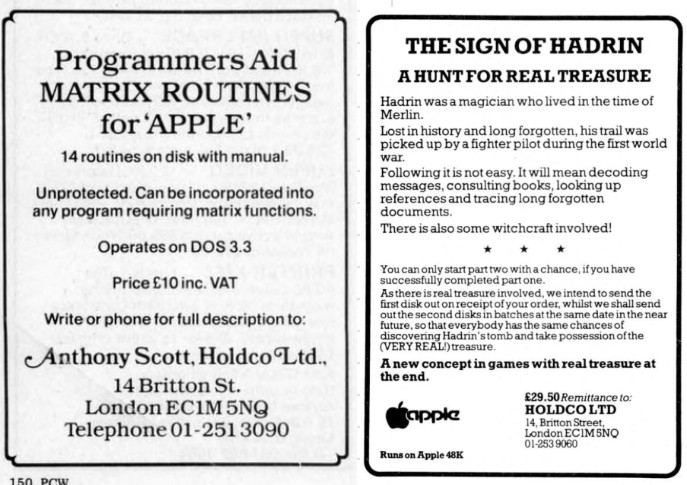
After pushing several versions of the Sign of Hadrin ad, Holdco suddenly changed scale in May 1983 with two types of ads, sometimes in the same magazine: one for games, another for business software. In both cases, Holdco associated itself with Hilderbay, a genuine professional software company that released the occasional game, one of which has even been covered by Renga in Blue.
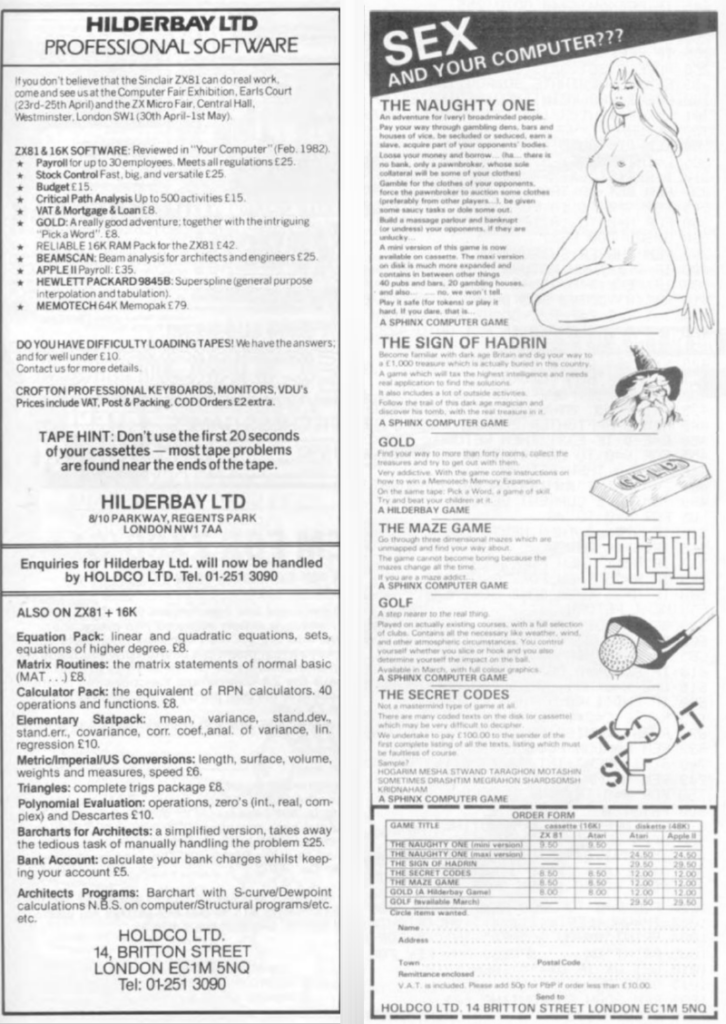
The naked lady only survived for one edition before being replaced by a “censored” banner.
The ad also showcases games by “Sphinx Computer Game”, but the fact that The Sign of Hadrin is supposedly by that company shows that it is undoubtedly another name used by Holdco. Still, there is nothing suspicious yet about Holdco’s activity, except maybe the inherent scaminess of “real cash prize” games. I could not find any letter to the editor complaining about Holdco, and while those games don’t look exciting I have no reason to believe they never existed.
Everything changes in July 1982 (in magazine ad time – so probably a couple of months earlier in real life). Hilderbay had a fallout with Holdco whose cause we can only speculate about, and it started running its own ads again – even stating in some of these “Holdco is no longer handling our advertising.” As for Holdco, that’s when it started publishing ads under “C.P.S. Games” and suddenly inflated its catalogue, with 20 new games between early August and October 1982:
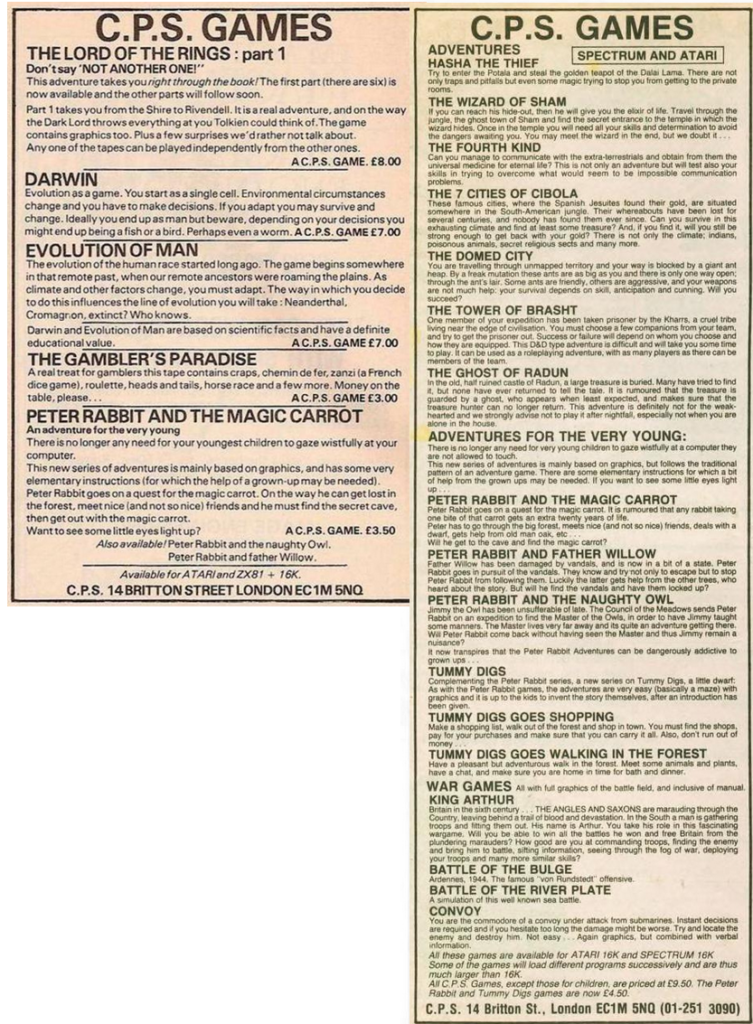
This is the first appearance of C.P.S.’ King Arthur, and also when it starts to become fishy. Those are the ads that are targeted by complaints, and those are the games that are all not only MIA but also unreviewed by contemporary magazines – except for Battle of the Bulge and King Arthur, but more on those two later.
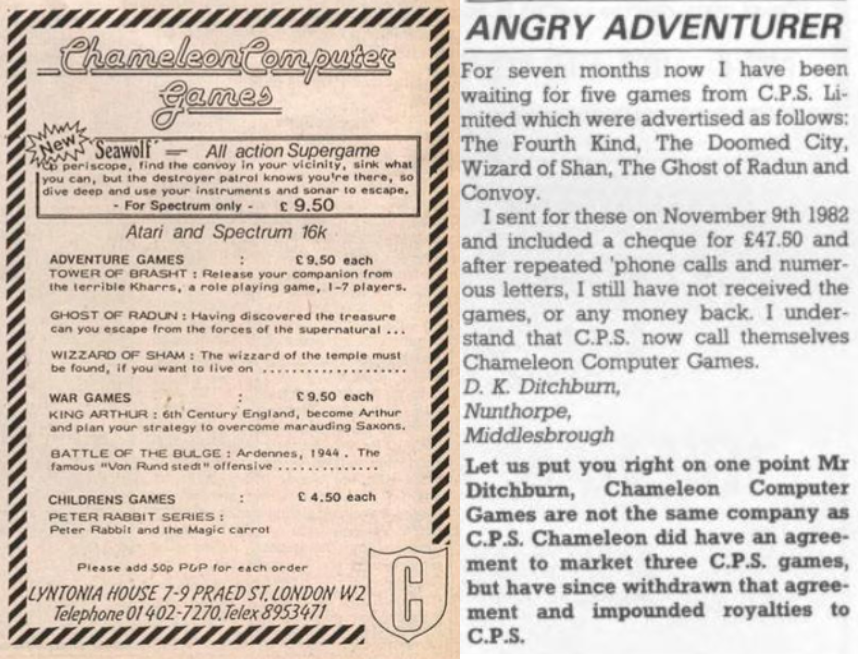
We’re back to the beginning of our story: C.P.S. Games moves to Lynthonia House in December 1982 and becomes Chameleon Computer Games in January 1983. Chameleon then claims that all sorts of issues prevented them from delivering the orders received by C.P.S. – a transfer of liability that made no business sense in the first place. Still, Goulding describes his plan: 10 games, including 4 wargames! It would never come to pass of course. In April and May, Chameleon’s ads downsized to show only 3 games (King Arthur, Battle of the Bulge and Seawolf), and that’s the last ads they would publish.
I have not fully unveiled the mystery of Holdco/C.P.S./Chameleon, but I can make a hypothesis. What I believe happened is that when the independently successful Hilderbay went its own way in July 1982, Holdco found itself with a tiny catalogue and a massive revenue gap. To compensate, C.P.S. started selling games it did not have; possibly they planned to develop them after the orders came in, but for one reason or another could not. To placate angry customers, C.P.S. moved its address away from the home of the founder (Anthony Scott?) in Britton Street to Lyntonia House, and only then thought about pretending to be another company. This gave them several weeks of extra time, but not much more because almost everyone saw through the shoddy disguise. It prompted C.P.S./Chameleon to change their strategy and to produce the three games they would show in their final ads. This would allow them to send these games as compensation (“sorry, we are all out of Tummy Digs, but please accept this Battle of the Bulge instead“), and more importantly it offered deniability: if you take the money for 10 games and don’t deliver any it’s a fraud, but if you take the money for 10 games and deliver 3 of them, it’s a bankruptcy.
Did I make interesting decisions? The only decision I took about this game was “stop or encore” on trying to play it.
Final rating: Totally obsolete. King Arthur was not designed to be played or fun, it was designed to exist. It is even possible that the designer made an active effort to turn the players away so they couldn’t prove that it did deliver on what the advertisement promised – if so it succeeded brilliantly.
I should note that Battle of the Bulge, now MIA, received a scathing review from Crash (“the real Battle of the Bulge has to have been more thrilling than this computer version, which is very badly dated.”). I hope it is never found.